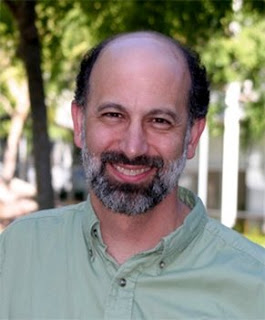Senate Republican Leader Mitch McConnell discusses the wasteful spending Democrats stuffed in their "economic stimulus" bill. Among the problems he points out are permanent spending increases and pet projects that are unlikely to create jobs. He also raises the question of hundreds of billions in interest payments that taxpayers will be responsible for if the bill passes in its current form. RepublicanLeader
McConnell: ‘There’s plenty of room to cut wasteful spending’ from the Office of Senator Mitch McConnell
‘Republicans have a number of better ideas for making this bill simpler, more targeted, and more directly beneficial to workers and homeowners’
WASHINGTON, DC – U.S. Senate Republican Leader Mitch McConnell made the following remarks on the Senate floor Wednesday:
“According to the news reports, President Obama called Congressional Democrats down to the White House the other night to talk about treating this bill more like a stimulus and less like a free for all. I commend him on the effort. And I appreciate it.
“But after yesterday it looks like they might need stronger medicine. The day after meeting with President Obama, Democrats offered several amendments — and every single one of them ADDED to the total cost of what is already nearly a trillion-dollar spending bill.
“Eleven billion here, 25 billion there, another $6 billion somewhere else. In other words: real money.
“By the end of the first day of debate, Democrats had added more than $41 billion to a bill that just about everybody else in America thought was already too big.
“On this side, Republicans offered some amendments too. All but one sought to reduce the cost to the taxpayer.
“The President has tried to set some priorities. Unfortunately, Democrats just keep throwing more money on top of an already-bloated bill.
“At some point, we’re going to have to learn to say no. If we’re going to help the economy, we need to get a hold of this bill. And making it bigger isn’t the answer.
“The President seems to recognize the problem. Last night, he repeated his call for discipline and restraint in a letter from OMB Director Peter Orszag. Its message was clear: The nation is in a financial crisis. And this bill should be stripped of everything that doesn’t aim to solve that crisis.
“As Mr. Orzsag put it: ‘We need to recognize that this recovery and reinvestment plan is an extraordinary response to an extraordinary crisis. It should not be seen as an opportunity to abandon the fiscal discipline that we owe each and every taxpayer in spending their money and in keeping the United States strong in a global, interdependent, economy.’
“This bill needs to be cut down. And we could start with permanent spending increases, which only increase the deficit from here on out. This is permanent spending that’s been slipped into a bill that was supposed to be timely, targeted and temporary.
“Many of these additions may be very worthwhile — but they don’t belong in a stimulus bill. So the first thing I think we need to do is make a distinction between what grows the economy and what doesn’t — and anything that doesn’t gets cut.
“That’s what the President said Monday night, and that’s what he repeated last night — that we need to be, quote, “trimming out things that aren’t relevant to putting people back to work right now.”
“Add the interest payments and the total non-stimulative spending in this bill and it’s in the hundreds of billions of dollars. And that’s just unacceptable.
“So there’s plenty of room to cut in wasteful spending. As Mr. Orszag said in his letter, the President is, quote, ‘insistent that the bill not include any earmarks or special projects….’
“Another target rich area is all the spending for new programs that claim to create new jobs.
“What people don’t realize is how much it costs to create some of these jobs. Analysts have gone through some of the new programs. Here’s what they’ve found:
· $524 million for a program at the State Department that promises to create 388 jobs here at home. That comes to $1.35 million per job.
· $125 million for the D.C. Water and Sewer Authority. That comes to $480,000 per job.
· $100 million for 300 jobs at USAID. That’s $333,333 per job.
“And that’s just a few. Surely there are more efficient ways to create jobs with taxpayer dollars than this.
“So there is plenty of room to cut in this bill. It’s time we started doing some of it. America is already staring at a $1 trillion deficit. The bill before us, in its current form, will cost, with interest, $1.3 trillion. Soon we’ll vote on an Omnibus Appropriations bill that will cost $400 billion. The President is talking about another round of bank bailout funds that some say could cost as much as four trillion dollars.
“This isn’t Monopoly money. All of it is borrowed — borrowed money that the taxpayers will have to pay back at some point. I think we owe it to them to lay all these things out on the table now so America can see what it’s getting into. And I think we also owe it the American people to show some restraint on the bill before us.
“Republicans have a number of better ideas for making this bill simpler, more targeted, and more directly beneficial to workers and homeowners. We’ve been sharing those ideas for the last week.
“Economists from both sides of the political spectrum recognize that housing is at the root of the current downturn. We believe we should fix this problem first, before we do anything else — certainly before we build a fish barrier, spruce up offices for bureaucrats or build a water slide. I mean, let’s get serious here. We can either talk about fixing the problem, or we can take immediate action to help 40 million Americans stay in their homes or buy a new one.
“We need to act now, and soon we’ll be voting on a Republican better idea to do just that.
“But first, there are plenty of areas in this bill we can cut even before we consider some of the good Republican ideas that President Obama has said he wants to incorporate into the final bill.” ###



















